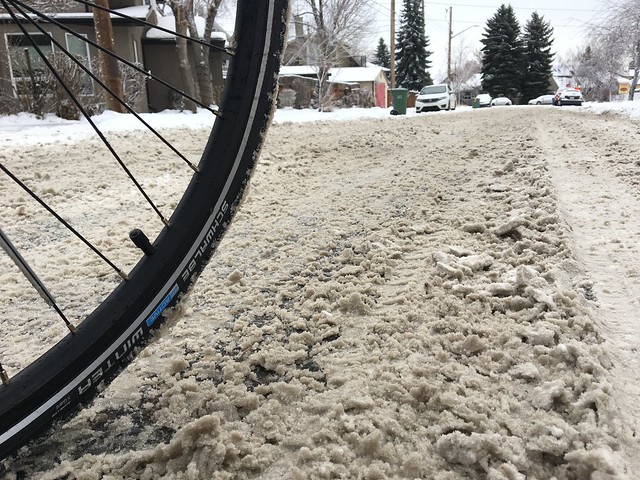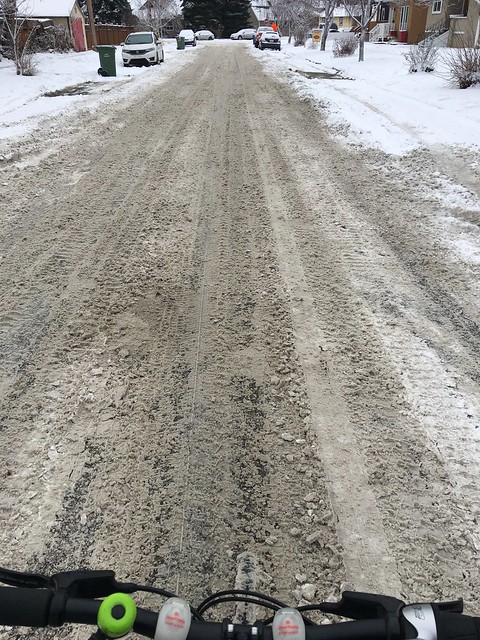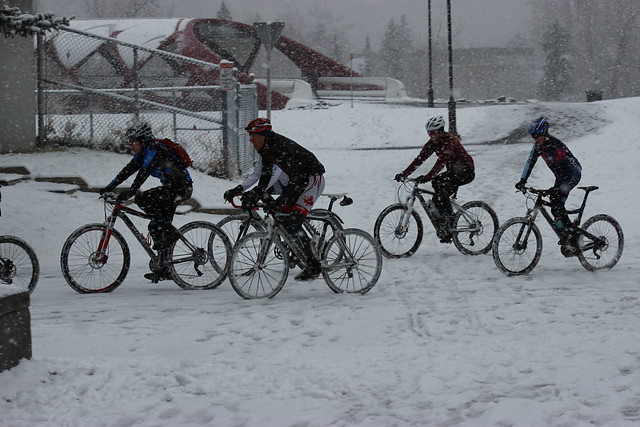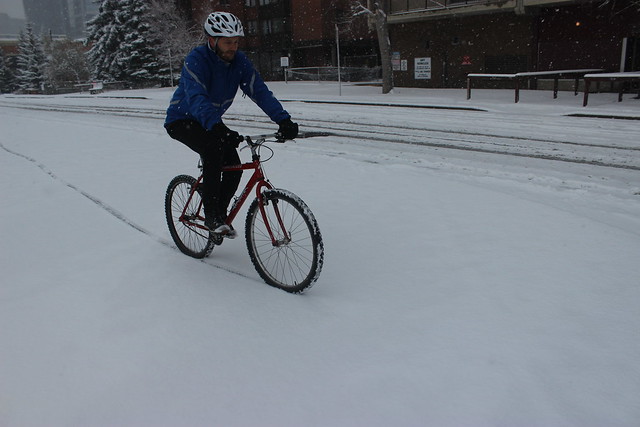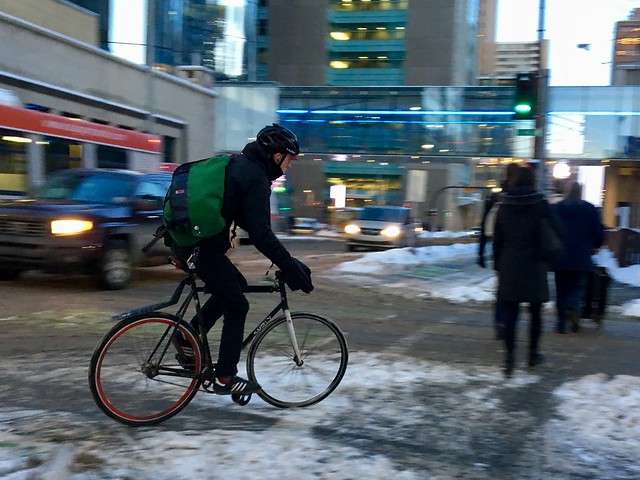
Riding through snow can be a little tricky, but also offers one of the great pleasures of cycling. Photo by Tom Babin.
There are plenty of challenges to riding a bike in winter, and sometimes they threaten to overwhelm its enjoyableness. But one thing that will always give the season a unique pleasure: Snow.
Once you get past the fear of slipping and falling (more on this later), snow offers an experience unlike any other you’ll have on a bike. Snow brings a magic to an environment, muffling the sound and brightening the night and creating a sense of timelessness and intimacy. When you cut through all of that on a bike, it can be an unforgettable moment.
But you can’t do that if you’re white-knuckled on your handlebars out of fear. Here are a few tips:
Embrace packed snow
Contrary to the impressions created by a lifetime of television ads for snow tires, packed snow isn’t the enemy of a wheel. In fact, packed snow offers fantastic traction for bicycles, and if you’ve never ridden on it, you might find yourself squealing in delight the first time you round a corner. If your city is advanced enough to have designated bike routes and is even more advanced to have embraced the idea of leaving these routes with a base layer of packed snow, congratulations. You will have a great winter on your bicycle.
If your city has yet to come around, you may have to do some searching. The best packed snow comes from routes that have light foot and bike traffic. Occasionally, you can find these conditions on a road with light car traffic, but even one too many cars can compress the snow down into an slick sandwich. Find the routes most conducive to packed snow and enjoy.
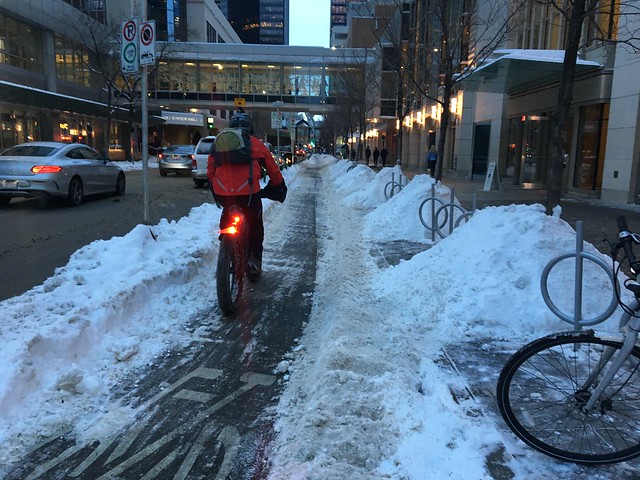
Safe bike routes that are well maintained in winter are key to happy winter cycling in cities. Photo by Tom Babin.
Find the right tire
Winters differ in every city. Thankfully, there is a bike company out there trying to make a buck off this fact. Choose your winter bike style based on the type of snow city in which you live. If your climate is prone to giant dumps of wet, heavy snow, you might want to invest in a fat bike, with its ultra-wide tires built specifically for winter. If your city gets dustings of light powder, a thin road tire that cuts through to the asphalt below may be the best option. If your city is prone to icing because of freeze-melt cycles all winter long, invest in a studded tire.
No matter which route you choose, there are tire options available these days for just about any condition that will keep you upright and smiling all season.
Adjust your riding style
- Slow down.
- Don’t lean into turns.
- If there is fresh powder, even remnants of it on a road criss-crossed with others’ tracks, steer toward it. It’s less likely to be made up of slippery compressed bits.
- Avoid the snirt.
- Pick a winter-friendly route to your destination.
Know when to throw in the towel
No matter what kind of winter hero you’ve become, there may come a time when the snow will get the best of you. A bike has yet to be invented to get through massive accumulations and giant drifts. When it comes to snow, volume is the winter-bike killer — there is just no way to push through snow that is deeper than about two feet. In such cases, it’s OK to leave your bike at home for a day or two, until plows, fellow pathway users or Mother Nature have improved conditions.

Fat bikes are super fun, and will give you some confidence for your winter commute. Photo by Tom Babin.
Try a fat bike
Not only have fat bikes opened up a whole new season to cycling, they are a great recreational training ground for your bike commute. Give one a try. You’ll find fat biking as fun and exhilarating as mountain biking, buta little slower and a little less technical as the snow tends to cover up the rocks and roots that littler most mountain bike trails. Added bonus: The snow will dampen your falls. Seriously, it’s a blast.
Enjoy the ride
Now that we got that out of the way, here’s what you can look forward to: In the early darkness of a winter evening, during which most of the city has retreated to their houses, you’ll be outdoors beneath the snowfall enjoying the moment. Your movement will keep you warm, the snow will brighten the night by reflecting the streetlights, and you will be enjoying the reptilian-brain satisfaction that comes from cutting fresh tracks through the snow. Your body’s feel-good exercise pheromones will be pumping, you’ll feel the freedom of avoiding lines of crawling cars, and you’ll make good time. Best of all, you’ll be outdoors enjoying the moments that most everyone else will have missed.
Have fun.
Follow Shifter on Facebook or Medium.
Follow Tom Babin on Twitter, Facebook or Medium.
Tom Babin is the author of Frostbike: The Joy, Pain and Numbness of Winter Cycling.


